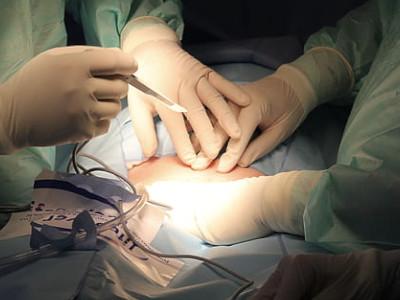
- Published on 07-Mar-2022
- 0 Likes
- 0 Comments
- 542 Times Read
Surgical procedures are becoming more effective, safe and reliable means of getting rid of fat and related diseases. The risks and complications involve are lessen because of these advances in obesity surgery.
Laparoscopic obesity surgery is one of those surgical procedures that has been gaining popularity compared to other operative procedures like open surgery. Why? Because in laparascopic surgery, a small fiberoptic tube is connected to a video screen, and is inserted through the small abdominal incisions, which allows the surgeon to see inside the body and view the area of operation without having to make large incisions. This is considered safe since it leads to less trauma and a reduced risk of infection. The surgeon creates a small pouch (stomach pouch) near the upper part of the stomach in a Laparoscopic obesity surgery procedure. This pouch limits the amount of food that person eats.
The very good thing about Laparoscopic obesity surgery, compared to open surgery, is that it does not put the immune system of the patient at risk. Open surgeries can compromise the immune system and even promote the growth of any existing tumors. The amount of time the operation takes for open surgeries can increase the risk of developing blood clots or wound infections. Patients may suffer severe apnea or heart disease.
The primary purpose of the operation for Laparoscopic obesity surgery is to reduce short-term morbidity as other weight loss surgeries. In Laparoscopic obesity surgery, the patients average stay in the hospital is 2-3 days in contrast to 4-6 days with the traditional open surgery. Patients recover faster when surgical procedure is done laparoscopically. Patients can return to work in 2 weeks. Hernia, the complication brought by open surgery, is significantly reduced in Laparoscopic obesity surgery.
The Laparoscopic obesity surgery embodies to inch small incisions instead of 8 to 10 inch incision done in the open approach.
The treatment for Laparoscopic obesity surgery may reduce post operative pain and medication levels, promote faster return of bowel function, and improved cosmetic results. Other advantage is that it does not involve any cutting or stapling of the stomach.
Laparoscopic obesity surgery is considered as an effective surgical procedure since it not only leads to satisfactory weight reduction but also associated with a low rate of complications compared to other operative procedures.
Yet, there are complications related to Laparoscopic obesity surgery that the patients should be aware of.




0 Comments